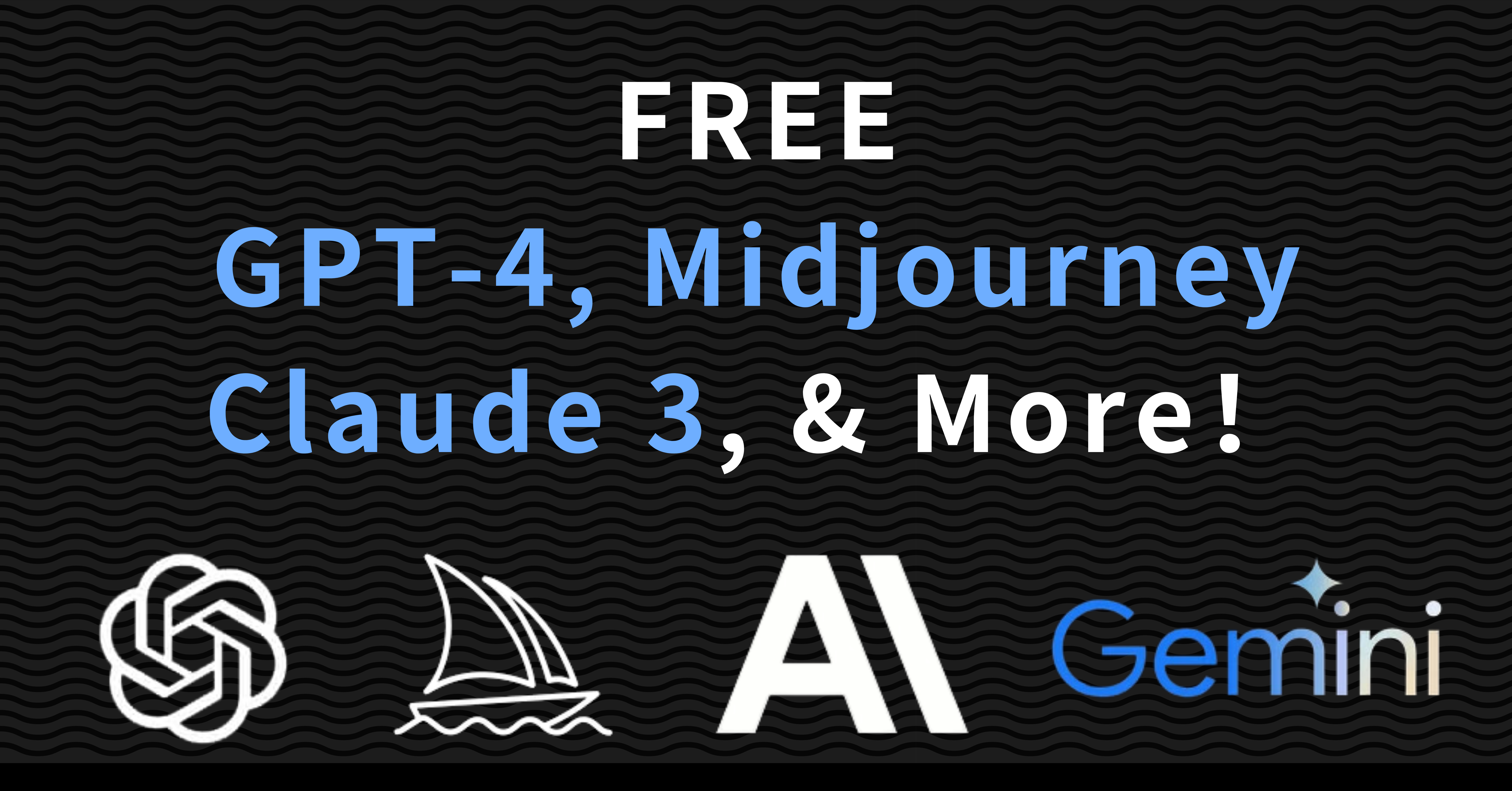Unlocking Free Access to GPT-4: A Comprehensive Guide to AI Accessibility

Bridging the Gap in AI Utilization
The rapid advancement in artificial intelligence (AI) technologies has brought forth revolutionary tools such as OpenAI's GPT-4, known for its exceptional language processing capabilities. However, the true democratization of such technology lies in the accessibility and distribution of these tools. This article delves into the realms of GPT-4's free access, exploring the collaborative efforts of platforms like GlobalGPT, the contributions of open-source AI communities, and the utilization of public AI resources to make AI more accessible to a broader audience.
The Pathways to Free GPT-4 Access
OpenAI and Free GPT-4 Initiatives
OpenAI has occasionally provided free access to its groundbreaking GPT-4 model through various initiatives aimed at promoting research and education. These include providing API access to selected educational institutions, non-profits, and researchers working on socially beneficial projects. This approach not only fosters innovation but also ensures that the development of AI technologies is aligned with ethical guidelines and societal benefits.
GlobalGPT: Expanding Reach and Accessibility
GlobalGPT has emerged as a key platform in enhancing the accessibility of GPT-4 by integrating it into a user-friendly interface that offers limited free access as part of its service. This strategy is particularly beneficial for small businesses, developers, and students who may not have the financial resources to afford direct API access from OpenAI. GlobalGPT allows users to experiment with AI capabilities, thereby encouraging learning and innovation within the AI space.

Pay-as-You-Go:
Top Up from Just $1 Balance Never Expires
All-in-One: Access All Models in One Place
AI Total Data Privacy
Unlimited Usage Limitation
Accepts Fiat and Crypto Payments
Leveraging Open-Source AI Communities for Enhanced Collaboration
Role of Open-Source AI Communities
Open-source AI communities play a pivotal role in the democratization of AI technologies. These communities contribute to a transparent ecosystem where developers from around the world can collaborate, improve, and share AI models that are accessible to everyone. Platforms like GitHub host a multitude of projects where enhancements to GPT-4 and similar models are continually developed and shared.
Contributions to AI Accessibility
The collaborative nature of these communities accelerates the advancement of AI technologies and makes them more robust and secure. By participating in open-source projects, contributors can ensure that the benefits of AI, especially powerful models like GPT-4, reach a global audience, regardless of economic barriers.
Utilizing Public AI Resources for Wider Access
The Importance of Public AI Resources
Public AI resources, such as datasets, software libraries, and access to AI models like GPT-4, play a crucial role in making AI accessible to all. These resources are often made available through academic institutions, government initiatives, or collaborations between tech companies and public entities. They provide essential tools for individuals and organizations worldwide to engage with AI without the need for substantial investments.
Enhancing AI Education and Development
These publicly available resources are not just tools; they are educational platforms that help cultivate a new generation of AI practitioners. By providing access to state-of-the-art AI models, public resources ensure that anyone interested in AI can learn, experiment, and build solutions that may one day transform industries.
Charting the Future of Accessible AI
As AI continues to evolve, the pathways to accessing technologies like GPT-4 will play a critical role in shaping its impact on society. By fostering an environment where AI tools are freely accessible through platforms like GlobalGPT, supported by open-source communities, and bolstered by public resources, we can ensure that the future of AI is innovative, inclusive, and infinitely expansive.
See Also
Free Mastery of Claude 3 Opus: An In-Depth Manual
Free Access to GPT-4: A Detailed Tutorial
AI Empowerment: Unleashing the Potential of ChatGPT
